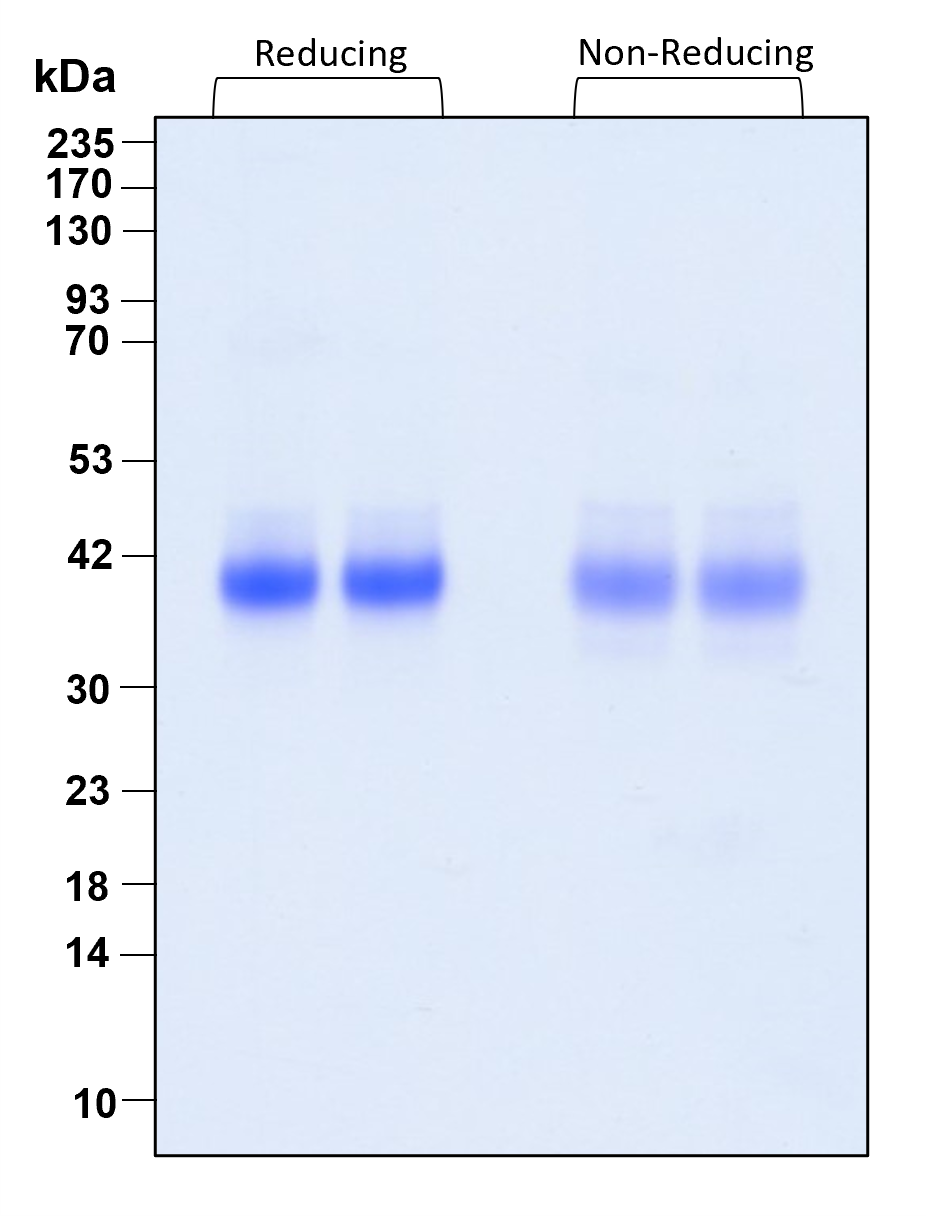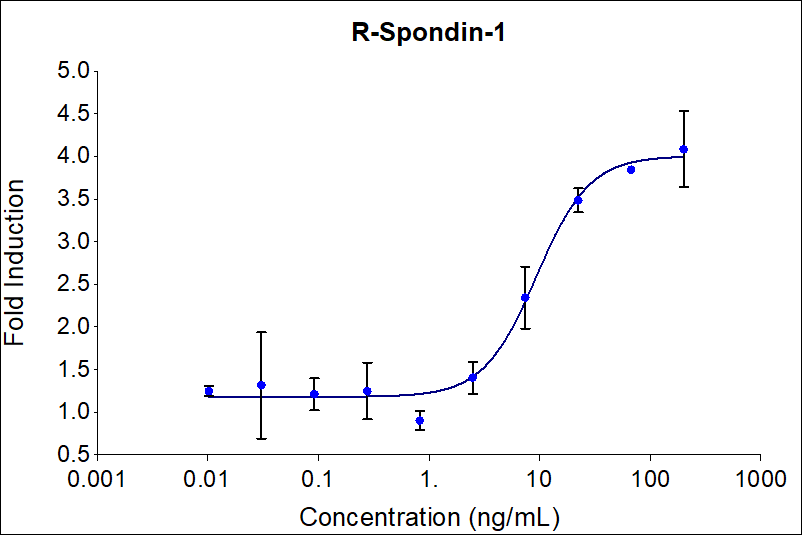Validation Data Gallery
Technical Specifications
| GeneID | 284654 |
| Species | Human |
| Expression | HEK293 |
| Activity(Primary) | 4-20 ng/mL |
| Purity | >95% |
| Endotoxin | <1 EU/μg |
| Accession Number | Q2MKA7 |
| Molecular Mass | 36-50 kDa reduced and non-reduced, monomer, glycosylated |
| Formulation | 1x PBS, See Certificate of Analysis for details |
| Species Reactivity | human |
Stability and Reconstitution
| Stability and Storage | Product Form | Temperature Conditions | Storage Time (From Date of Receipt) |
|---|---|---|---|
| Lyophilized | -20°C to -80°C | Until Expiry Date | |
| Lyophilized | Room Temperature | 2 weeks | |
| Reconstituted as per CofA | -20°C to -80°C | 6 months | |
| Reconstituted as per CofA | 4°C | 1 week | |
| Avoid repeated freeze-thaw cycles. | |||
| Reconstitution | Briefly centrifuge the vial before opening. It is recommended to reconstitute the protein to 0.2 mg/mL in sterile 1x PBS pH 7.4 containing 0.1% endotoxin-free recombinant human serum albumin (HSA). Gently swirl or tap vial to mix. |
Background
R-Spondin 1 is an approximately 40kDA, glycosylated protein that serves as a major agonist of the Wnt signaling pathway. It regulates the turnover of the LRP6 co-receptor by preventing its internalization by DKK-1. R-Spondin 1 plays several roles in embryonic development including sex phenotype reversal, female sex determination, and ovarian differentiation. It also promotes stem cell turnover in the mammary glands, intestine, colon, and kidneys. Increased R-Spondin 1 expression has been linked to growth and migration of ovarian cancer cells as well as decreased sensitivity of gliomas to radiation-based therapies (PMID: 17804805, 22439850, 32749219, 30572097).
Synonyms
Roof-plate specific spondin-1, Critsin3, RSPO1,HRspo1
Publications
| Species | Title |
|---|---|
Nat Commun Pharmacological blockade of TEAD–YAP reveals its therapeutic limitation in cancer cells | |
Mol Neurobiol Teriflunomide Promotes Blood-Brain Barrier Integrity by Upregulating Claudin-1 via the Wnt/β-catenin Signaling Pathway in Multiple Sclerosis | |
Redox Biol PNKP targeting engages the autophagic machinery through STING and STAT3 to potentiate ferroptosis and chemotherapy in TNBC | |
Nat Commun KAT8-mediated H4K16ac is essential for sustaining trophoblast self-renewal and proliferation via regulating CDX2 |


